Daniel Baden has been in practice for 3 decades now. He started out doing local community talks as a fresh grad and quickly transitioned into industry. He now has many credentials and a wealth of experience under his belt including being a: Naturopath, Homeopath, Lecturer, Published Author, Educator, Entrepreneur, Natural Product creator, advisor to media and industry, member of advisory boards and OneCAM and now Managing Director of Biomedica. He has really seen it all, and done it all!
Daniel sat down with me recently to talk about the industry trends he has seen over his long and varied career AND to make a few predictions of what we might see in this new decade. His passion and generosity for our industry and profession really shine through in this interview, and he shares plenty of gold nuggets of wisdom. Tune in or read below for the interview.
Editor’s Note: There are audio issues in this podcast recording but there are too many gold nuggets in this conversation to be missed so please read the transcript for the wisdom Daniel shared.
A Conversation With Daniel Baden
T: Hey everybody, and welcome to a Super Series episode of the Natupreneur Movement! I’m super excited to talk to an amazing contributor to our profession. Someone who has spent three decades in our profession in so many different roles from being a naturopath, a homeopath, a clinician, a lecturer, a writer, he has sat on advisory boards for natural medicine, he’s consulted for industry media, and he’s been such an integral part of the way that we are progressing as a profession, particularly here in Australia.
I’m so excited to talk with you, Daniel Baden!
D: Thank you very much. What a wonderful welcome!
T: I have been so excited, I did a little bit of stalking on you. I found out that you have been around for three decades! Three decades is a long time to be in one profession.
D: Well, actually, it’s exactly three decades this year. I graduated finally in 1999, so 2019 marks 30 years.
T: Amazing! So when it comes to back in the day, when you were graduating, what was your experience of going through qualification?
A 30 Year Career
D: Look, it was vastly different. Firstly, there’s a different type of students. We were all fairly idealistic, I think, and fairly broke. Definitely it was a lot cheaper to go through in those days. But people came from very different backgrounds. Often second or third careers.
10 years later, I noticed that it all changed quite a bit in the type of people that were coming into the courses. There was a lot more money coming into the industry and that brought different people and lecturers. People were there for all sorts of different reasons.
So the early days were quite, quite different. It was a bit more hippie-ish, but quite sciency at the same time. Probably the word that describes it far more than anything was we were much more indoctrinated in the philosophies of natural medicine. So when you end up speaking to people who’ve been around 20, 30, 40 years, we often talk about missing the philosophy, more than anything.
Science Changes, Philosophy Endures
T: Yeah, and that’s the stuff that stays about. Science does change, even from my time. I did my first uni degree 20 years ago and even the science of genetics is completely changed from when I was studying it. Whereas the philosophy, it stands the test of time.
D: Absolutely. Because having that sort of belief system goes across every modality, it goes across every patient. And when you really stuck with a difficult case, you could always rely on your philosophy of healing to help those patients at some point. Yeah, it’s really important.
T: Let’s go in decades because it is all about starting the new decade. So your first decade in practice, you finished and came out as a fresh newbie practitioner. But I happen to have found a couple of little newsletters and things. You were out creating your own business straight away. Quite quickly, you got into the industry rather than the profession. You were in the profession to begin doing lots of talks for the local Sydney area in things like hyperglycemia and things like that, in the beginning.
D: Well, firstly, congratulations on your detective work. I trust you didn’t find any of those photos from back then. It was a very different look.
Getting Visible
I realised very soon that to build a practice, you really needed to connect with people and that’s still relevant today. I know that there are different ways of connecting these days through social media and whatnot. But nothing beats people getting to know you face to face or through writing, through newspapers and journals and that sort of thing.
That’s basically how I got myself into building a practice quite quickly. Just by going out and spending a lot of time talking to people, being on radio, and writing articles for various journals and newspapers. Also, talking at the Lions Club in the local.
So I would devote time every week, just to get to know my community. I just thought that was so important. But within a year or so, I had quite a busy practice. That was just because people got to meet me.
T: I think that’s really one of the big hurdles for a lot of practitioners who are just starting out. Many of the people who listen to the podcast are just starting out. That’s a big hurdle, getting visible. Visibility looks a little bit different these days because we’re not necessarily just in front of people in person. It is part of that online side of things. But the more eyes that are on you and your articles, the more the local and broader community get to know you, right?
Don’t Neglect The ‘Person To Person’ Factor
D: Absolutely. I really understand the social media thing, well I pretend to, at least. And it is, I understand, critically important.
However, when you want to find a dentist, for example, you don’t generally go online and pick one out of some sort of platform. You ask a couple of friends who’s a good dentist. Those referrals are so important. Those referrals come from also meeting you.
So if you’re talking in front of 20 mum at the kindergarten and they can interact with you, that is so powerful. You’ve got to back it up with social media but to get a practice established, I really feel that you have to get out there. I still think that’s valid today, just to connect with people. And I think people really like it. It’s really easy to get in and to talk to people because they’re all looking for people. So I would encourage it.
T: It’s the gold standard. Person to person is absolutely the gold standard. There’s also this fascinating thing. You have a breadth of knowledge across so many areas.
New Practitioners Often Have The Freshest Knowledge
But newbie practitioners actually have the freshest knowledge in so many areas that they can share without actually having seen clients. They can share that knowledge because it’s the freshest information out there on a natural health scale.
D: Yeah. And certainly, there’s a lot of really good information out there. I do think, in many ways, that many of the new fresh practitioners out there are probably a lot smarter than me with what they’ve been educated in. And their ability to research. They come out with much better skills than we came out with, in that respect.
But, experience is also very important. I think we all come out of qualification with a certain level of arrogance, thinking that natural medicines can do everything. Thinking we’re just amazing. And we are, generally.
But we also have to understand the role of other modalities, medicine, chiropractic, etc. Over time, you develop an idea of where your place is and that’s really important, I reckon. Because you start to work for the patient. You start to understand what the patients need at any one time.
As an example of what I’m trying to say here: We’ve been dealing a lot with oncology for some years now. Fifteen years ago, I would have loved to have gotten more patients going towards natural medicine exclusively for their oncology work. However, I’ve now realised that 90% of the people will seek medical oncology and use us for support. So what I’m talking about is dealing with the reality of the situation and working with other professionals and understanding what your role is in what the contemporary expectation is.
Collaboration Over Competition
T: Yeah. I really believe that it’s a level of collaboration over competition. Not just as natural health practitioners to natural health practitioners or profession to industry. I really do believe that we can be in a collaborative care model with all facets of medicine.
D: Look, there’s plenty of work out there for all of us. And you’re spot on, Tammy. Collaboration is the key to patient wellness and well being. So, if we step away from egos and focus on the patient, I think the patients will do really well.
T: Yeah, I do too. Speaking of collaboration over competition, I really feel the synergy. I find it interesting when I hear other perspectives on this because I actually feel the synergy between our industry and our profession, our suppliers, our remedies, and even regulatory bodies and the profession of health.
And you made the leap between being a profession and going into industry quite quickly.
Going From Profession To Industry
D: It’s changed quite a bit over the last few years. Back when I started, I started a distribution business in the same year I graduated called Traditional Medicine Supplies. We distributed to many different brands, I think, 120 odd brands.
When we started that business, it was basically other naturopaths or other health professionals that had started their own formulation brands. It was common back in those days for practitioners or herbalists to produce a few herbs and extracts themselves and do barter trading with other herbalists
But over the last few years, I also know that our industry (as opposed to the profession) has become much more corporatised. We’re seeing a lot of natural health investors. Every trend shows that it’s going to develop stronger in the future so that’s attracted the interest of investors and that is changing the industry side of things a little bit. We certainly see that in some of the marketing campaigns and that sort of thing on the regulatory side.
Regulations Will Be Getting Tougher
I’m currently Director on the Board of Complementary Medicines Australia. I therefore also do a lot with the regulatory side of things. And it’s going to get tougher, it’s definitely getting tougher. The TGA as a product regulator has indicated that they intend to get tougher over time. And that will bring some change.
But overall, I think from that point of view, it improves the standard and quality of what we do. But in terms of product development, it may also restrict the number of products coming to market. To be honest, if the regulations go where they’re going, some products won’t survive.
So there will be changes. There’s no doubt about it. We’re involved in that every day.
Expect More Pressure From Antagonists Of Natural Medicine
Then, as we get more popular on the professional side of things, the antagonists of natural medicine will increase the pressure on that. We’ve seen that over the last few years with the science of medicine and other groups that are having a go at natural medicines all the time. And this is sort of protectionism in that.
As part of my role at CMA, I started a campaign to get all the associations working together and also brought industry in. So we’ve started a group called OneCAM. It took me 30 years, but I got there!
We sat around the table in the boardroom here at Biomedica and all the association presidents came in including some of the integrated medical associations. We feel that together with industry, we can actually develop a very strong, pro complementary medicine strategy for the next few years. I’m very excited about it.
T: I love that. And I love what you said about the more popular we become, the more attention we get that we might not necessarily want. But it started with, “the more popular we become.”
I think this is the thing. People and the general public are turning natural and integrative medicine and remedies. That means more eyes are on it and therefore, a higher likelihood that some of those eyes will be in resistance. I think as practitioners when we start to get our information and knowledge out there, we can feel attacked. But I think it’s actually because we are getting in front of more people and becoming more popular, and therefore, more pushback.
Staying Strong As A Group And Individually
D: Absolutely. There’s no doubt about it. Something like 73% of the Australian population currently uses some form of natural medicine. And that’s a big number. That’s a big number. So it does get a lot of attention.
Some of these other guys can play quite dirty, some of the people who don’t like natural medicines. We have to be strong as a group. Being strong means we get together and that’s what OneCAM is about. Getting a lot of positive feel and vibe and story into the media about complementary medicine. That’s the strategy.
Variety Is A Good Thing
The other side of it is, for the individual practitioner, they have to be strong and resolute in what they do every day. There are many practitioners who have been trained in different ways and have different skill sets, and that’s good.
Some practitioners come through as naturopaths, or herbalists, or nutritionists. Depending on where they’ve done the course, they get more into the philosophy of healing or not. Some can get quite sciency. It’s important, it’s good, but it can also get a little bit confusing for some practitioners because they don’t know where they stand. From my experience, whether they’re more sciency or more philosophical, it’s important to have an understanding of both. That’s the strength that we have, really. I think that’s very important to maintain.
T: Yeah, I think we have so many strengths. Even your career as an example. Going from being in the profession, to in the industry, becoming part of the media, then becoming part of advocacy, to writing up scientific articles.
There are so many different varieties of practitioners who have different strengths, gifts and talents. Seeing how your career has gone shows them the possibilities available to them. I think over the years you’ve spoken on and written articles on everything from ingredients to vaccinations to cancer to allergies to your most recent oncology series.
The Importance of Balance
D: You’ve got to work out what’s important to you. At Biomedia, we try to be very honest about what we do. Sometimes, especially the overseas experience, we see some ingredients that have been corrupted, or data has been presented that is not scientifically true but can be commercially manipulated for sales purposes. So sometimes we feel like we need to write articles to just bring balance to a conversation.
This industry and professionals, really every industry and profession, will be subject to significant trends. I just think it’s important to bring balance. One example is: a few years ago, there was a very strong trend towards HFR. There were many articles and people thought folic acid was poison and all these sorts of comments. Please just bring balance to a conversation. It’s important in everything we do to bring balance.
T: You bring up an interesting point around commercial interests. I love that Biomedica is still the practitioner only product brand. Specifically, there are so many amazing core values around being for practitioners and for integrated medicine.
Creating Products
Your past had you in some other roles in creating different products. And I wanted to highlight some of that for some practitioners who are thinking maybe they could be involved in creating a product.
Creating products has evolved since the 90s when you first came through. And then the early 2000s when you actually were part of a very popular papaya product that is been all over the internet.
What’s it like to be part of that whole creation of products and remedies for the people who really want to know more about that?
D: Well, first you’ve got to be a type-A personality, who gets frustrated with something and just says, “I’ll just do it then!”
With the papaya product, for example, I had patients that were using other, chemically-based papayas. And I thought I was seeing clinic evidence of the adverse effects of too much chemical toxicity. I spoke to the brand and asked them to make a natural one because I didn’t want my patients to have xeno-estrogens and all sorts of things. And they said, No, we’re not going to. So I thought, “Well, bugger it. I’ll just do it myself!” That’s where that product came from.
I also started a herbal liquid brand with another guy. I’m no longer part of that organisation but that was born because we wanted to have quality markers in some of the herbs that we were we were hoping to use clinically. We developed a range out of need.
Filling A Need
That’s the same story as Biomedica. We just saw a need. We knew we needed to protect practitioners, to grow the opportunity for practitioners, and we want professionalism in what we do. So we developed Biomedica because we got sick of people substituting our products and we didn’t know what the patients were getting. They’d been on our product and they’d swap and then they come back and we just couldn’t work out from a health point of view what was happening.
So we thought, if we create a brand that’s got sort of a prescription view towards that, it keeps the patient consistent on the product more. It really does help with healing. That’s how Biomedica came about.
T: You’re just scoffing over that! It’s like, “Oh, yes, just while we were in practice, we just decided to make this whole other brand.” That is a huge undertaking!
I remember in my third or fourth year deciding that I would finally make a powder that would suit the majority of my clients, and it massive to take up!
D: When we started by America, it was pre-Pan Pharmaceuticals days. I just use that as a marker because when Pan Pharmaceuticals went down, it completely changed the industry. So pre-Pan Pharmaceuticals, you could make a small run of products. We used to use them in our own clinics and sell them to a few friends. So it was mainly for our own purposes.\
The Regulatory Bar Has Risen
But over time, when Pan happened, we had to make a decision as to whether we would continue with Biomedica because the bar got set so much higher. The TGA came down pretty heavily and it required a lot more investment, a lot more paperwork and research, and that sort of thing.
That’s kind of when I stepped back from practice. Garth, my business partner and colleague, is still in full-time practice and he is our clinical director. So we get first-hand experience with the products and a big hand in formulation.
But I stepped back and focused on running the business bit more because the regulatory side of things got so crazy that you just needed someone there to do it every day. And all of a sudden there’s a lot more money involved. It just costs so much to bring out a product these days in terms of batch size, minimum batch sizes.
It takes so long in research for a product because we have to produce evidence tables to support what we do. We have to find the right manufacturers that suit our manufacturing policies like low excipients. Not all manufacturers would do that for you.
So there is a huge investment in it in time. Then if the TGA, for example, asks you particular questions – which they can under the legislation – to prove the evidence for your product, it can take one staff member six weeks to pull out the evidence requirements. So it takes a lot of effort. I understand why the big corporates are getting involved because this is a big effort involved.
Believe You Can Make A Difference
But it shouldn’t stop people from doing it. It shouldn’t ever stop. What I love in this industry more than anything is a good entrepreneur. There are so many opportunities in this profession and in this industry. So many opportunities. You just have to walk around with your eyes open and you have to believe in how you think you can make a difference.
Whether that’s developing a product or a unique approach towards clinical practice, whatever it is, every sector has opportunity there. You have to trust yourself a little bit and back yourself into it.
T: I Couldn’t agree more. There’s a level of trust and belief in ourselves and what we know and what we can see as an opportunity. To see the need and then go and fill that need. I think there are so many opportunities. You’ve shown so many examples across so many different factors across our profession in your past couple of decades.
Coming Trends In Complementary Medicine
What I’d like to ask you, what’s new in natural medicine for the next decade that you see, either from these different places you advise, from a product perspective, or from a professional standpoint?
D: They’re interesting areas.
Continued Growth Of Natural Medicine
Number one, I see natural medicine is set to keep growing.
The TGA has made some changes, allowing for some new product ingredients to come in. That will slowly evolve and continue to improve.
Increased Use Of Genetic & Other Testing
The other area, that I note a lot of younger practitioners get into is genetic testing or other forms of testing. It’s quite interesting because I see from a lot of the older practitioners or more senior practitioners, they don’t do anywhere near the amount of testing that the younger ones do.
I think the younger practitioners just need to be a little bit careful because there’s a lot of marketing behind a lot of the testing that’s out there but not much validation. So I really hope that we trust ourselves a little bit more, as a profession to trust what we’re doing from a holistic point of view, and not become too dependent on some of the tests that are out there.
Traditional Medicine Will Find Our Soft Spots
Because that, down the track, may come a little unstuck. Medicine will find some soft spots if they want to attack us on the basis of some of the tests that we do without validation.
I see going through a stage over the next few years of more and more testing. I suspect that may back off a little bit until there’s a little more evidence behind some of the tests that are out there. I think we will hopefully develop more trust in our own abilities as practitioners and understand that the diet and herbs and nutrition integrated can be quite powerful tools.
A Focus On Correct Dosages
Another thing we’re quite interested in trying to help people develop is practitioners getting the doses right. We see people going to a lot of conferences and seminars and that sort of thing and then giving the patient a whole wide variety of products, but they’re all sub-optimally dosed.
In our opinion and clinical experience, it’s so much better to really work hard to think about which ingredient or product is most suitable for that patient and just get the dose right up. It makes all the difference clinically. So that’s something we’d like to work on.
Encouraging Science For Complementing Medicine
But we really do see a lot of encouraging science for complementary medicine. We really do see a lot of people that are just getting such clinical benefit from it.
T: I Couldn’t agree more. I think the more clinical cases that we see that have this backing of following through with therapeutic dosages. Seeing the research of ‘n equals one’ is one of my favourite things. Seeing how these things have actually gone with the patients is important. What you brought up before about innovation, finding those gaps where you see a need and following through on that.
An Amazing World Of Opportunity For Complementary Medicine
D: Yeah, look, I, I would really encourage practitioners to talk to each other a lot. I realise that isolation is an issue. But we learn so much from each other. And that sense of collaboration that you mentioned earlier – you’re spot on, it is so important.
But don’t limit yourself to Australia. Find your way to conferences in other parts of the world, trade shows and whatnot. Have a look at what’s out there. It’s an amazing world of opportunity for complementary medicine. If I go to a conference in the US or the UK or anywhere, I just come across amazing practitioners, amazing products, and amazing stories.
It’s just so important for our professional people in Australia to just get amongst it, just to get out there. Keep your eyes open to all of that. It can only make you stronger Lewis as a practitioner and help you understand that you are an amazing evolution.
T: I love it. It’s been so wonderful to hear part of your evolution over the past three decades. I can’t wait to see what happens with Biomedica and OneCam, in particular, over the next decade.
Thank you so much for your contribution, Daniel, and thank you so much for having a chat today. I’m excited to have you guys as part of NatEx 2020 and I look forward to speaking to you in the future.
D: Beautiful. Thank you.
Take Action
If you got something out of this, please share it with someone else who might, as well!
BioMedica is one of the amazing sponsors of NatEx 2020. Will you be there? Don’t miss out on all the amazing goodness that will be there!
Free Resources
Thinking about taking your business online? Make sure you have all the essentials you need to successfully transition to online consults and a virtual practice covered with my How To Pivot Online Checklist.

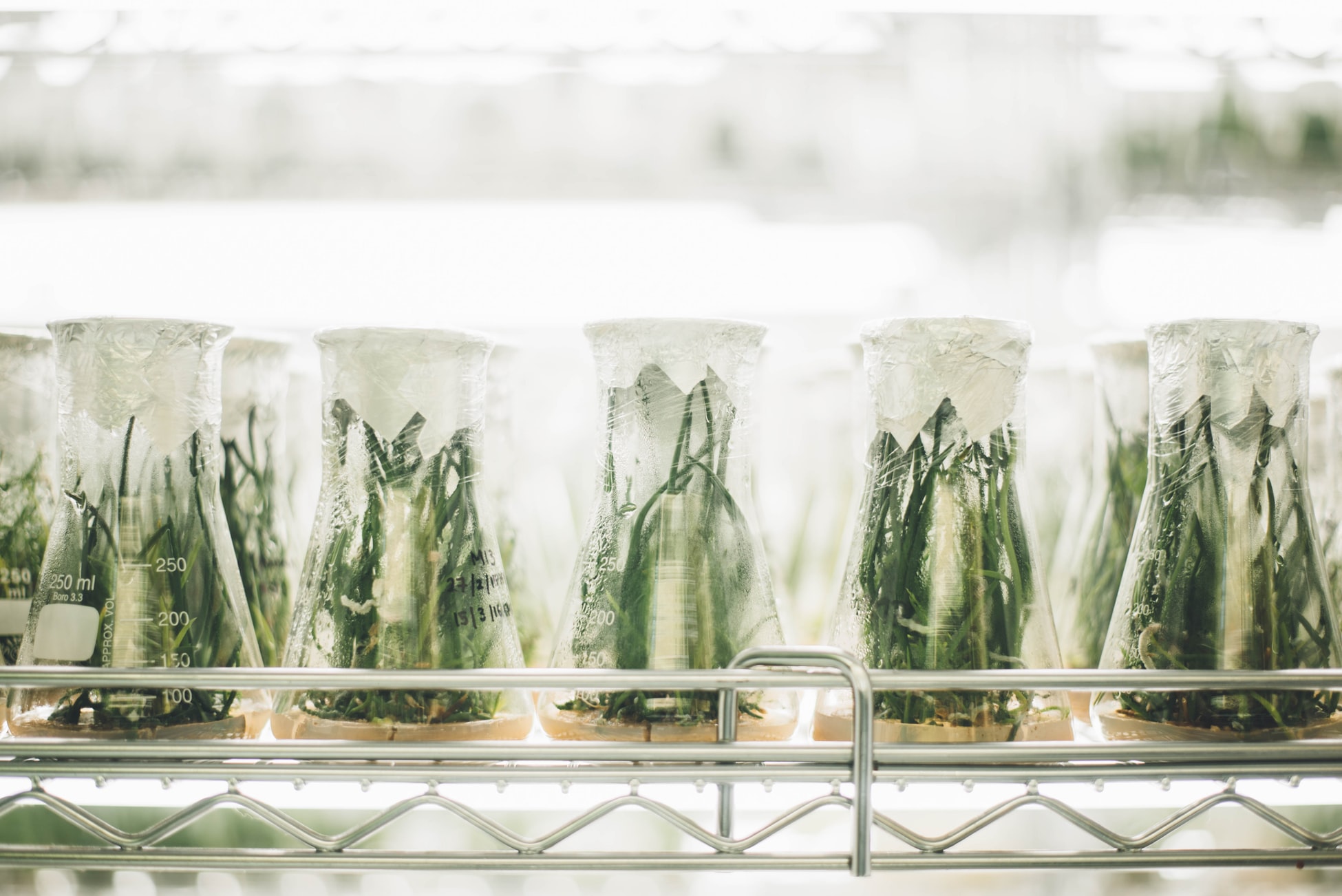
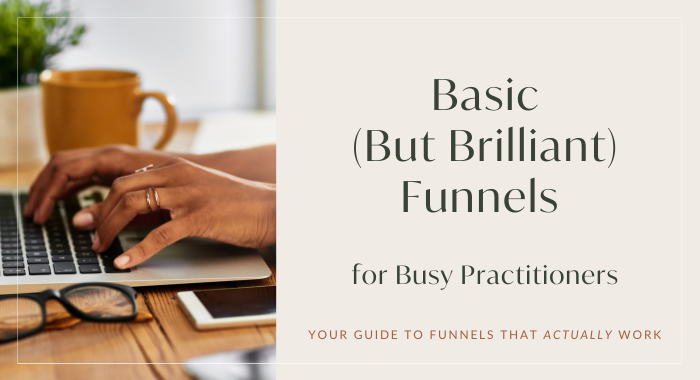
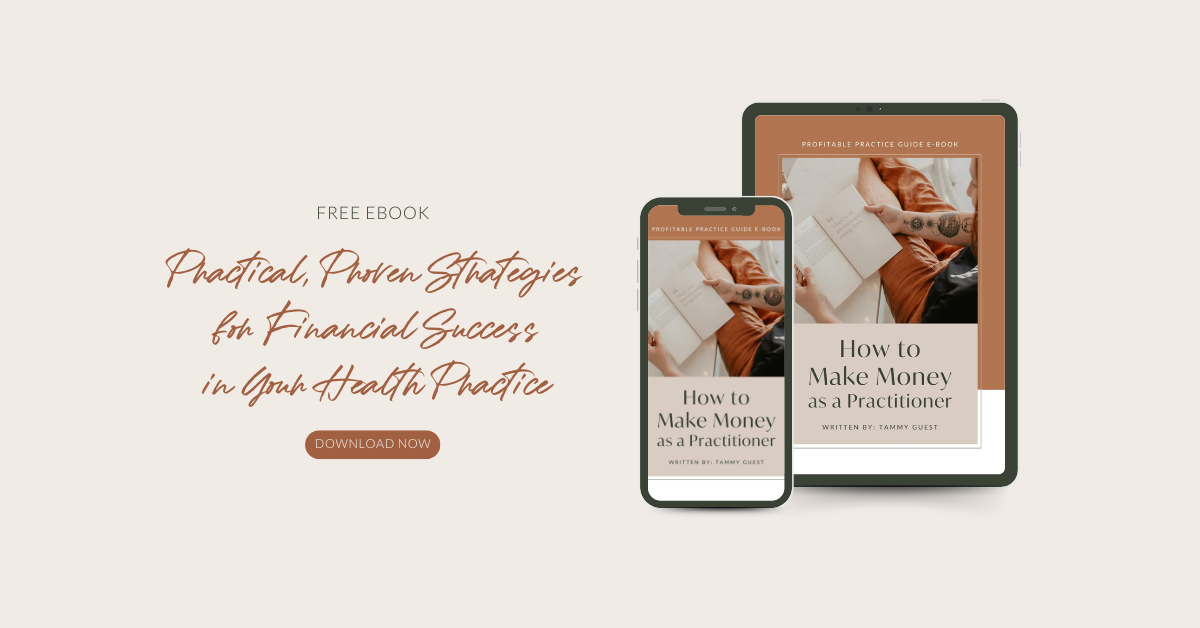


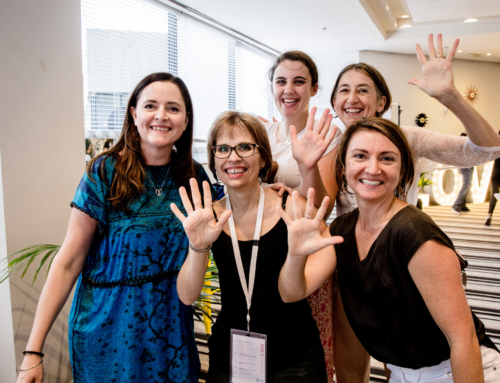


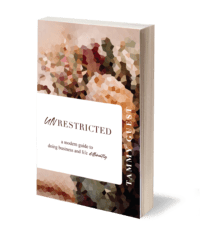
Leave A Comment